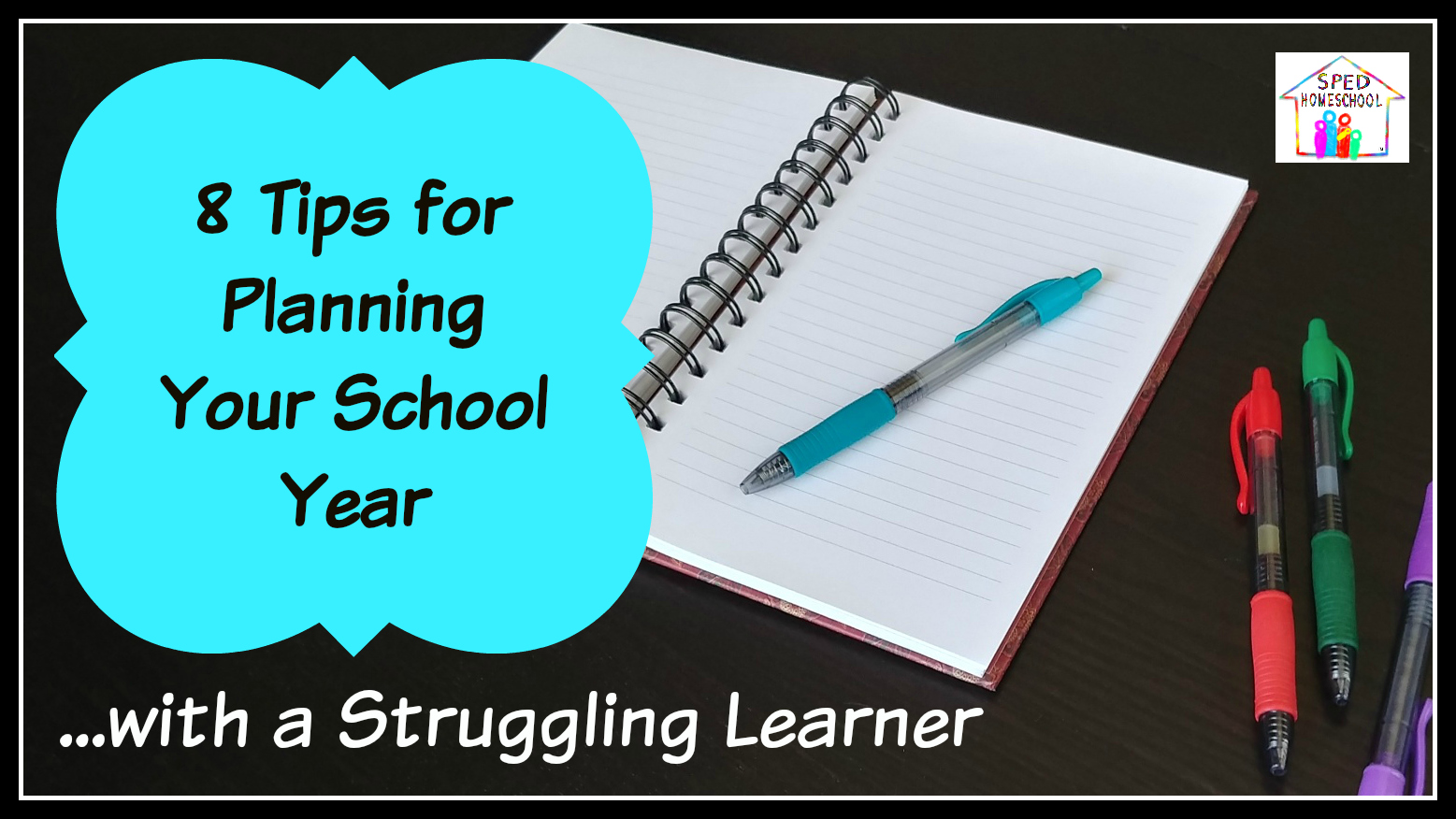Thanksgiving celebrations all over the United States gives families time to pause and thank God for all He has done for us over this past year. At the top of my list was my family, especially the many answered prayers God has worked out in the lives of my children. But, next on my list was this new ministry, SPED Homeschool.
If you are not familiar with SPED Homeschool, other than the articles we post on our website or the free resources we offer for special education homeschooling families, I am excited to have this chance to share with you why we have so much to thankful about.
Where it All Started
SPED Homeschool incorporated as a nonprofit in late August (2017) to fill a resource and support void in the national special education homeschooling community. But, that is not where SPED Homeschool got its start. A little over two years ago, I accepted a volunteer position with the Texas Home School Coalition (THSC) to work on their customer service team and help with their efforts in supporting the Texas special needs homeschooling community, just like I had done in starting up a special needs outreach in Minnesota for MACHE (Minnesota Association of Christian Home Educators).
“But, there was a stirring inside me I couldn’t shake…one that kept me looking at the greater need for special education homeschooling families beyond our state borders.”
Over these past two years, my work for THSC grew from a volunteer position to a staff position, and my team also grew to include an assistant consultant and eight volunteer team members. We were working well as a team, and it showed. A speaker at the THSC convention this past May told me she felt “THSC had the premier state organization special needs department” and I had to step back and smile at all God had brought together. But, there was a stirring inside me I couldn’t shake…one that kept me looking at the greater need for special education homeschooling families beyond our state borders.
When Curriculum and Online Support Is Not Enough
For those on the outside of the special needs homeschooling community, it looks like these families have everything they need to successfully homeschool. With an ever increasing number of special needs homeschooling curriculums and Facebook support groups to cover most diagnoses, an outsider would say these families have a strong support base.
With all that is available, navigating the many options requires more precious time than these families can afford. Offering a trust-worthy, one-stop place with a national reach to provide recommendations to the best resources, support and advice became my goal. In addition to curriculum suggestions, parents are looking for local support groups, local co-ops, local therapy providers, and state and county resource providers who are special needs AND homeschool friendly.
These resources are extremely difficult to track down unless someone in their area, like a local or state special needs homeschooling consultant, has taken the time to scout them out. Instead, these parents struggle to do this leg work and advocate for their child in a completely new schooling realm, while juggling the already taxing load they have raising and homeschooling at least one child with special needs.
Who We Are
In early June of 2017 I approached THSC about stepping out of my position and taking my team, minus a dedicated assistant special needs consultant, to start a new national special education nonprofit ministry. THSC not only blessed my request, but have worked to help promote our efforts from the start.
Five of the volunteers who had been working with me at THSC had also been feeling the need to grow our ministry, so they transitioned as part of our team and board: Dyana Robbins,Dawn Spence, Shanel Tarrant-Simone, Cammie Arn, Myeshi Briley, and Elaine Carmichael. And, soon after our launch, we added three more members our team Sherry Martin, Kimberly Vogel, and Jennifer Cullimore and two more board members Dianne Craft and Dr. Jan Bedell.
Each of these team and board members are parents who took the leap to homeschool their own student with special educational needs. Some are still in-the-trenches teaching every day, and some have graduated their students and are now fully devoted to helping other parents on this journey. But the great calling we all share is to minister to families who are homeschooling children with learning challenges. As our team and ministry continues to grow, our main goal is to help SPED homeschooling families in every facet we have been helped by God and others along our own homeschooling paths.
What We Are Doing
It has been a busy fall for us at SPED Homeschool, but we don’t plan on slowing down anytime soon.
Since starting SPED Homeschool in late July (2017), our first steps in setting up outreach to special education homeschooling parents has been:
-
-
Recruiting influential and knowledgeable board members in the field of special education homeschooling
-
Branding SPED Homeschool to be an approachable, yet professional, organization for special education homeschooling parents
-
Developing a website with useful and pertinent static content pages
-
Scheduling content calendars for blogs,images, and videos
-
-
Incorporating as a Texas nonprofit on August 24, 2017
-
Receiving IRS approval on September 28, 2017 with a Federal 501.c.3. tax exempt status
Why Special Education Homeschooling is Growing
Current statistics are now showing a 25% special education student demographic already within the homeschooling population, which spans a wide range of learning difficulties. Plus, one of the fastest-growing groups seeking parent-led homeschooling education are families already in the public school special education system or those whose children are enrolled in early childhood intervention programs which experts feel is much greater than the current national learning disability diagnosis rate of 13%.
Families who choose to homeschool, do not do so lightly. Many, just like myself 14 years ago, realize homeschooling is the only educational option able to provide the necessary customized instruction their children need. These families sacrifice careers, time, and money because they believe their children have a better future than most educational institutions are willing to help them achieve. These are parents are determined not to let their children become one of the increasing statistics of our failing public school special education programs.
These statistics show that only 65.5% of students in the US, who have a known learning disability, graduate high school as cited by the Grad Nation Report . But, even the majority of these graduates are not ready to transition into a meaningful job or into higher education.
A recent survey on this subject stated 90% of current students labeled with learning disabilities had the ability to make a successful job or higher education transition if they were helped to establish a support system before graduation per The Hechinger Report . Unfortunately, most of the programs in our current high school education system are not focused on this effort and most students who graduate are not prepared for life beyond their high school career.
We can’t do this without you!
Since SPED Homeschool is a nonprofit and our bylaws are set up in a way to not require membership because of the financial hardship many of our families face, we completely rely donors and partners to keep our outreach going.
-
Please pray for God to move mightily in providing for our needs
-
Help us get the word out about our nonprofit and how we are working to fill the gaps that currently exist for families who homeschool children with special educational needs
-
Fall 2019 Update – 2 Years into this Journey
We now have partnered with over 110 organizations, host a weekly live broadcast that reaches on average 900 viewers/listeners a week, have a solid leadership team, and are already working on some very exciting new developments for 2020 which will include upgraded technology and reach of our broadcast and regional support groups on a site that follows HIPAA compliance standards so our families can start sharing local resources with one another and connecting with each other in person.
Our board, team and I are excited about the hopeful future ahead for special education homeschooling families and we thank you for your consideration in supporting us in our calling to fill the gaps for special education homeschooling families.






